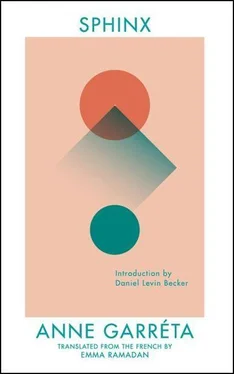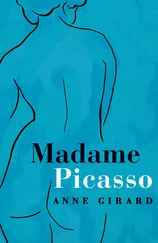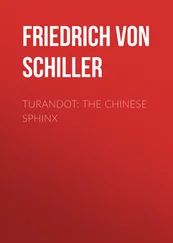Because of the constraint Garréta chose for herself, A***’s character barely exists in the novel; A*** almost never speaks in his or her own words and doesn’t seem to have a developed personality. The reader notices, and A*** notices too. Garréta doesn’t gloss over this, but rather makes it the focal point of the novel. One night A*** reproaches je for dooming their relationship to failure from the start by engaging with only an image of A***, an image that did not correspond with reality, that forced je to mentally kill off the real A*** in order to enjoy a particular vision that alone was able to bring about je ’s satisfaction. A devastating vampirization that happens in relationships no matter the genders of those involved.
Until now, there did not exist an English translation of a full-length work by a female Oulipian. And excluding this translation there does not yet exist a genderless love story written in English. Why not? And how can stepping into a universe where a relationship can be described without using gender markers expand our ways of thinking about love, desire, relationships? About gender? About identity? If our pre-conceived notions about all of these things are defied by this text, what does that say about our pre-conceived notions? Reading Sphinx is one way to think about these questions, to question our ways of thinking.
I owe an enormous thank you to Anne Garréta, Bernard Turle, and especially to Dan Gunn and the professors and students in the Masters of Cultural Translation at The American University of Paris for encouraging me to think and rethink these questions over the past year. My perceptions, my ideas, and my bookshelves are the better for it.
Emma Ramadan
Marrakech, 2015
ANNE GARRÉTA (born 1962) is the first member of the Oulipo to be born after its founding. A graduate of France’s prestigious École normale supérieure, Garréta received her PhD from New York University in 1988. A lecturer at the University of Rennes II since 1995, Garréta has also taught at numerous American universities, and currently teaches at Duke University as a Research Professor of Literature and Romance Studies. Her first novel, Sphinx (Grasset, 1986), published when she was only twenty-three years old, was unanimously hailed by critics. Her second novel, Ciels liquides (Grasset, 1990), tells the fate of a character losing the use of language. In La Décomposition (Grasset, 1999), a serial killer methodically murders characters from Marcel Proust’s In Search of Lost Time. She met Oulipian Jacques Roubaud in Vienna in 1993, and was invited to present her work at an Oulipo seminar in March 1994 and again in May 2000, which led to her invitation to join the Oulipo. She won France’s prestigious Prix Médicis in 2002, awarded each year to an author whose “fame does not yet match their talent” (she is the second Oulipian to win the award — Georges Perec won in 1978), for her most recent novel, Pas un jour (Grasset, 2002), and she has served on the Prix Médicis judging committee since 2013.
EMMA RAMADAN is a graduate of Brown University, and received her Master’s in Cultural Translation from the American University of Paris. Her translation of Anne Parian’s Monospace will be published in the fall of 2015 by La Presse (Fence Books). She was awarded a 2014–2015 Fulbright grant for literary translation in Morocco.
DANIEL LEVIN BECKER is literary editor of The Believer and the youngest member of the Oulipo. His first book, Many Subtle Channels: In Praise of Potential Literature, was published by Harvard University Press in 2012.












